Martin Hardieck
AddNet: Deep Neural Networks Using FPGA-Optimized Multipliers
Nov 19, 2019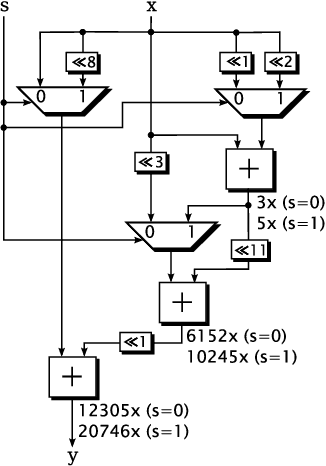
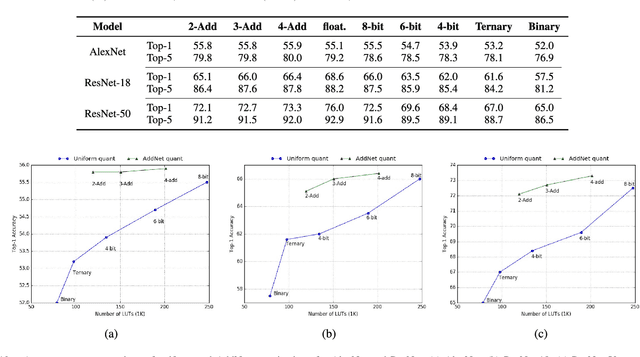
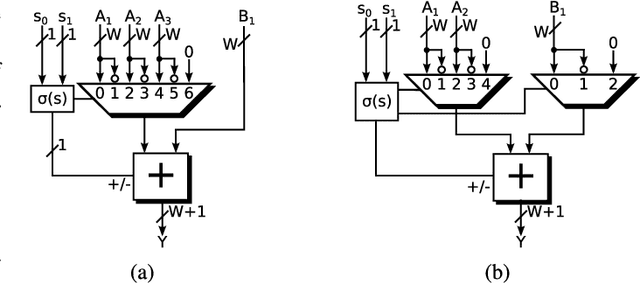
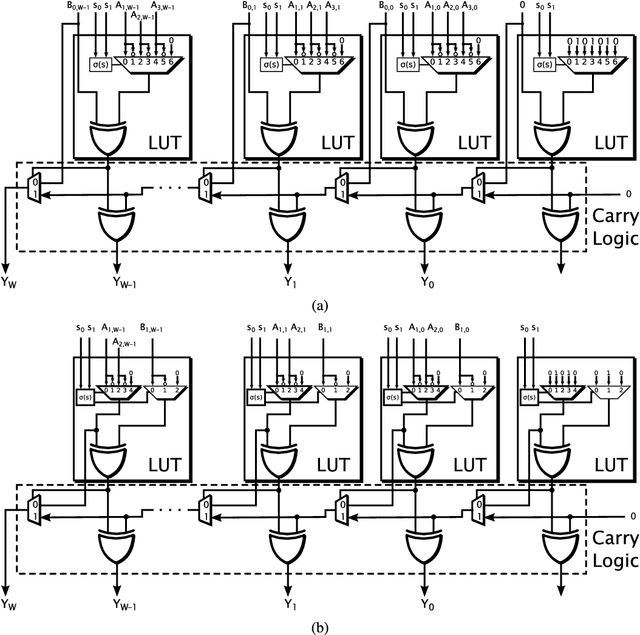
Abstract:Low-precision arithmetic operations to accelerate deep-learning applications on field-programmable gate arrays (FPGAs) have been studied extensively, because they offer the potential to save silicon area or increase throughput. However, these benefits come at the cost of a decrease in accuracy. In this article, we demonstrate that reconfigurable constant coefficient multipliers (RCCMs) offer a better alternative for saving the silicon area than utilizing low-precision arithmetic. RCCMs multiply input values by a restricted choice of coefficients using only adders, subtractors, bit shifts, and multiplexers (MUXes), meaning that they can be heavily optimized for FPGAs. We propose a family of RCCMs tailored to FPGA logic elements to ensure their efficient utilization. To minimize information loss from quantization, we then develop novel training techniques that map the possible coefficient representations of the RCCMs to neural network weight parameter distributions. This enables the usage of the RCCMs in hardware, while maintaining high accuracy. We demonstrate the benefits of these techniques using AlexNet, ResNet-18, and ResNet-50 networks. The resulting implementations achieve up to 50% resource savings over traditional 8-bit quantized networks, translating to significant speedups and power savings. Our RCCM with the lowest resource requirements exceeds 6-bit fixed point accuracy, while all other implementations with RCCMs achieve at least similar accuracy to an 8-bit uniformly quantized design, while achieving significant resource savings.
Unrolling Ternary Neural Networks
Sep 09, 2019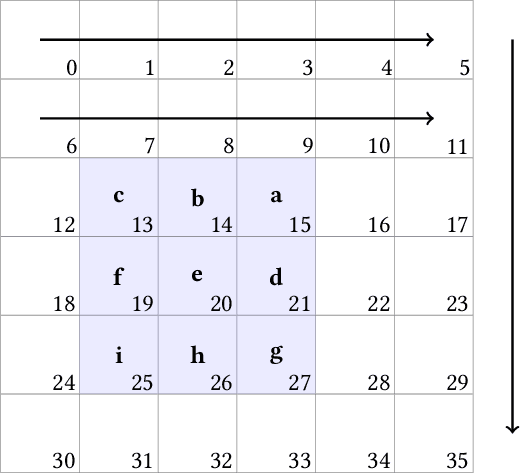
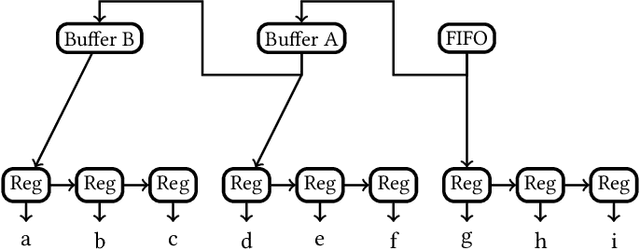
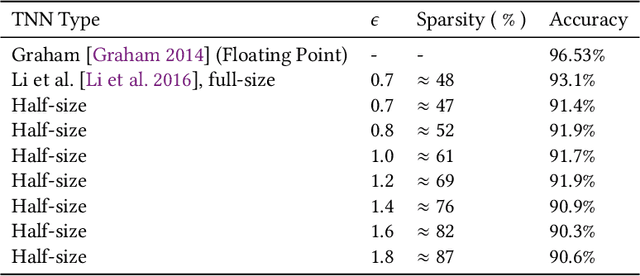
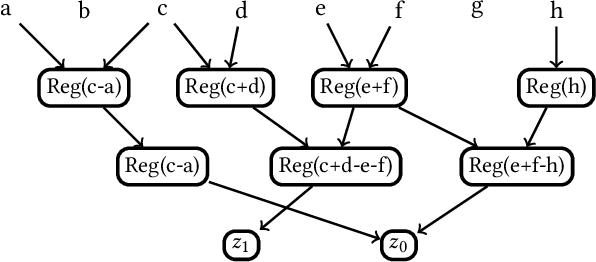
Abstract:The computational complexity of neural networks for large scale or real-time applications necessitates hardware acceleration. Most approaches assume that the network architecture and parameters are unknown at design time, permitting usage in a large number of applications. This paper demonstrates, for the case where the neural network architecture and ternary weight values are known a priori, that extremely high throughput implementations of neural network inference can be made by customising the datapath and routing to remove unnecessary computations and data movement. This approach is ideally suited to FPGA implementations as a specialized implementation of a trained network improves efficiency while still retaining generality with the reconfigurability of an FPGA. A VGG style network with ternary weights and fixed point activations is implemented for the CIFAR10 dataset on Amazon's AWS F1 instance. This paper demonstrates how to remove 90% of the operations in convolutional layers by exploiting sparsity and compile-time optimizations. The implementation in hardware achieves 90.9 +/- 0.1% accuracy and 122 k frames per second, with a latency of only 29 us, which is the fastest CNN inference implementation reported so far on an FPGA.
 Add to Chrome
Add to Chrome Add to Firefox
Add to Firefox Add to Edge
Add to Edge